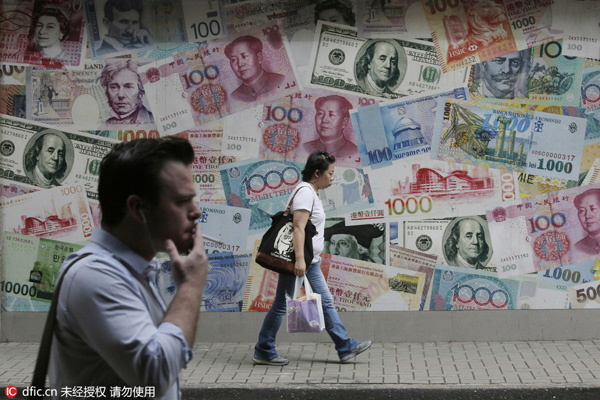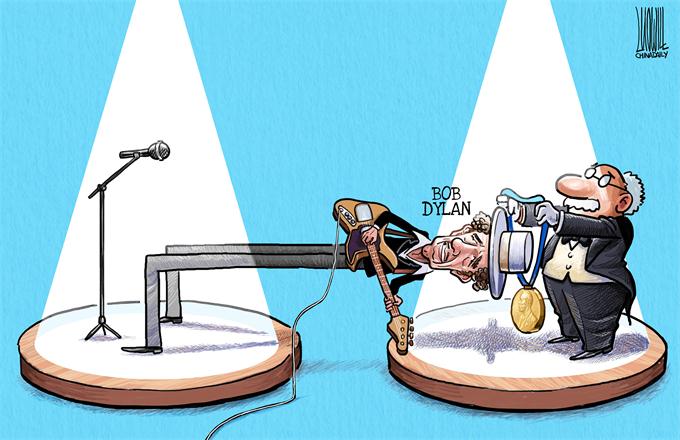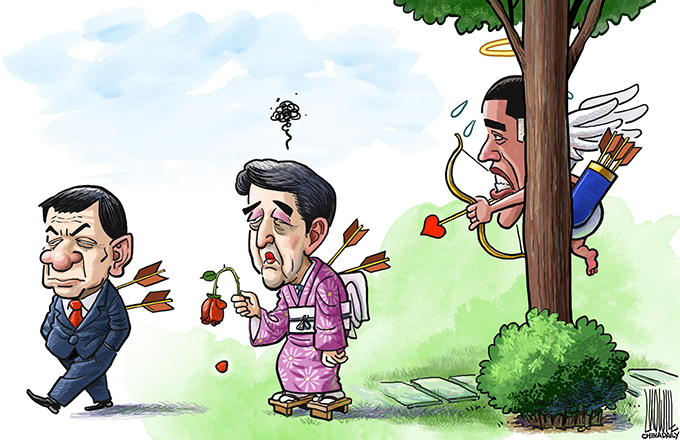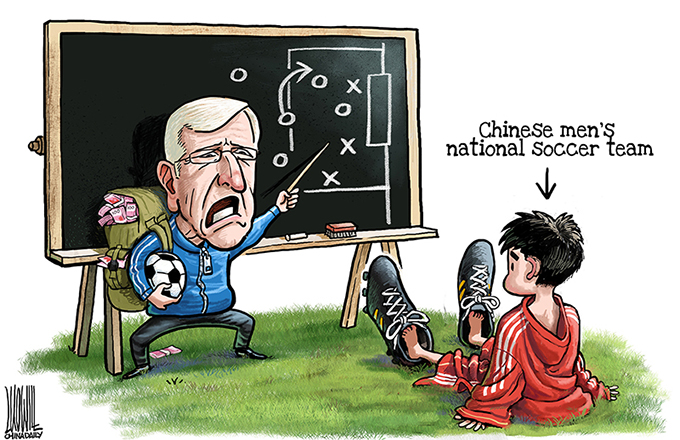Growing investment belies claims of unfair treatment
 |
|
People walk past a money exchange decorated with different currencies in Hong Kong, June 27, 2016. [Photo/IC] |
When the global economy is in a bad way, protectionism rears its ugly head, and with it come barriers to block the free flow of capital and technology.
Thus it is not surprising that Chinese overseas investments have been facing closer scrutiny by foreign governments, even in Germany, a long-term advocate of free trade.
In the two latest cases, Berlin has taken back its approval for a Chinese company's takeover of its microchip maker Aixtron, citing security reasons; and it is reviewing the sale of Osram's light bulb unit to a Chinese buyer.
The security pretext, given as an excuse to block a trade deal, could not be more far-fetched. China and Germany have forged a very close trade relationship over the years, and China has never in any way posed a threat to Germany's national security.
Sigmar Gabriel, Germany's economic affairs minister and vice-chancellor, who is on a five-day visit to China, has been more straightforward, complaining that China is buying up key technologies in Germany while setting high hurdles to inward foreign investment, which he argues shows a lack of "reciprocity" from Beijing.
This would seem to be justification of Berlin's recent protectionist moves as retaliation for what it sees as China refusing to further open its market and create a level playing field for foreign investors.
However, China is a staunch supporter of free trade and globalization, and it is making rapid progress to expand market access for foreign investment.
In the first nine months, according to China's Ministry of Commerce, foreign direct investment grew by 4.3 percent year-on-year, despite the sluggish global economy. Around 20,000 new foreign-funded businesses were established, up 10 percent from a year earlier. Growth in investment from Germany was particularly robust, soaring by 95.8 percent over this period, second only to that of the United States.
All this belies claims of "foul play" and "discriminatory requirements" being imposed on foreign investors by China. In fact, according to the ministry, among foreign investors in the country, 90 percent are considering expanding their business here.
China is pushing forward its industrial upgrading and economic transition. Leaders should seize the opportunities created by this trend, rather than seeking to make China a scapegoat for their own domestic woes.

















